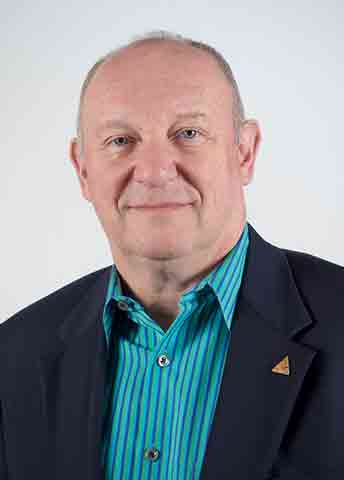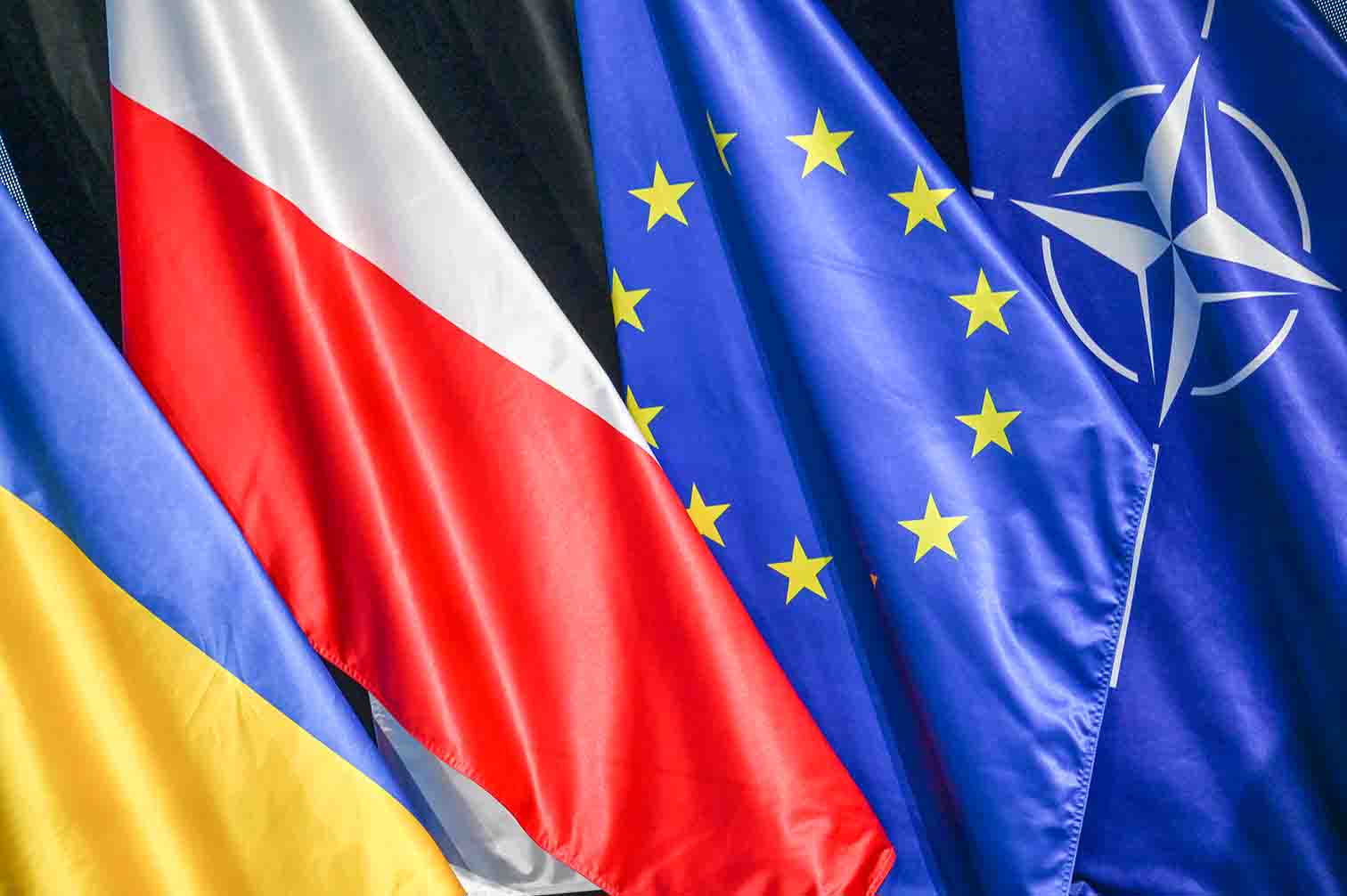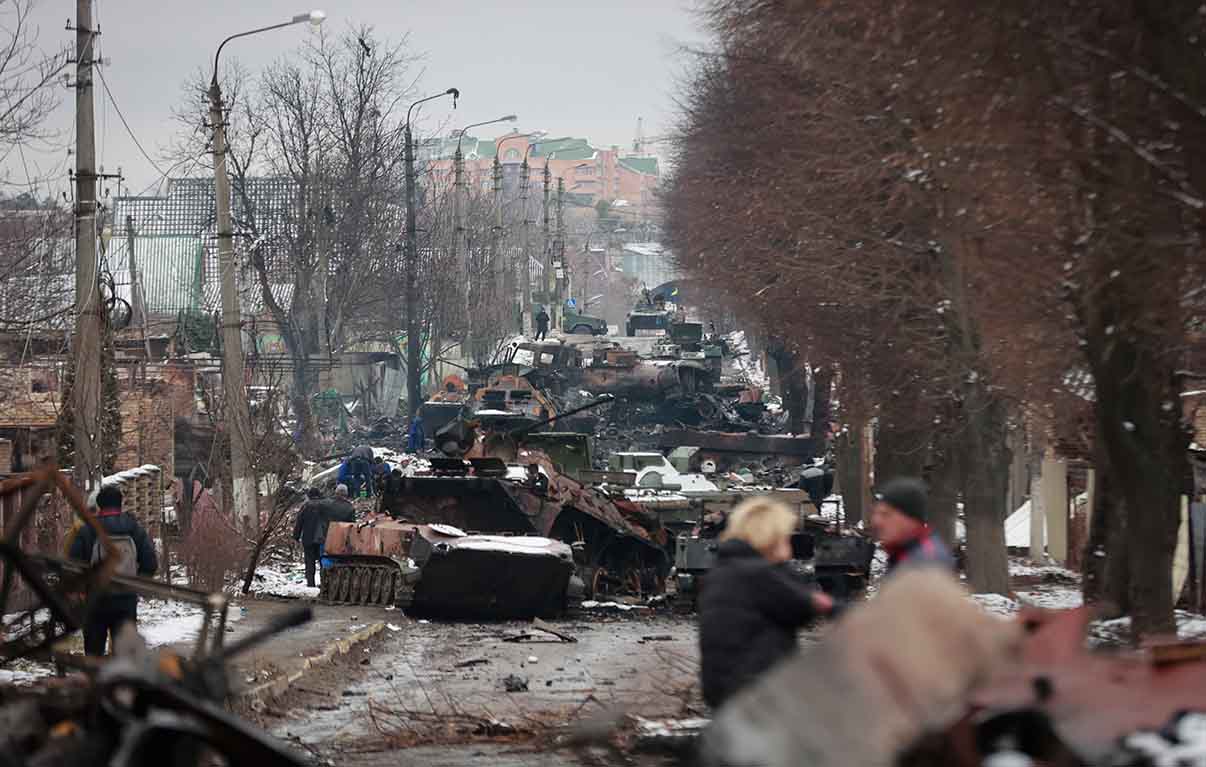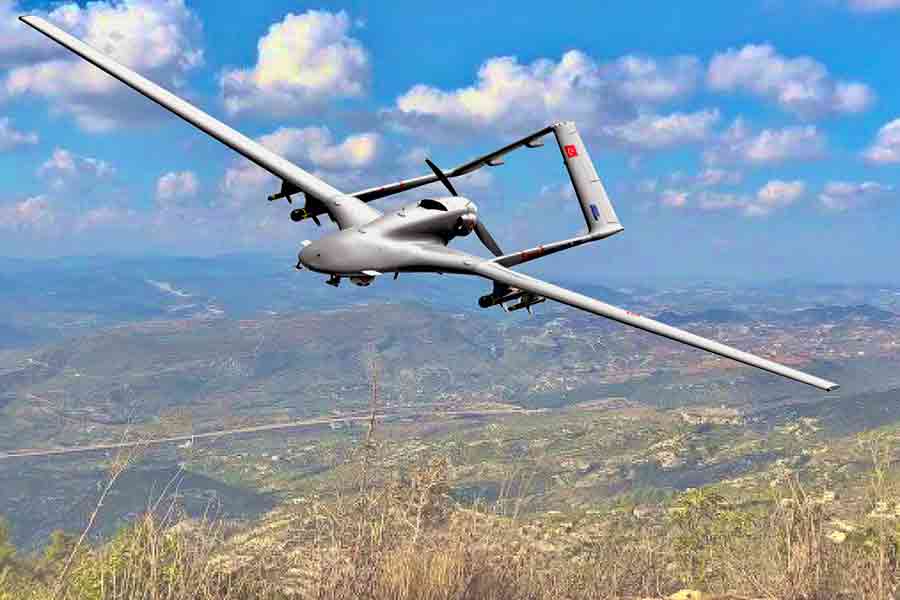The project of the anti-missile base in Redzikowo near Słupsk gave a chance for a permanent presence of US troops in Poland, as well as for an effective anti-missile defense system, including long-range missiles. Unfortunately, in 2008, the Russians wanted to block the construction of this base or at least achieve a delay. The government of Prime Minister Tusk, meeting the expectations of the Russians, extended negotiations with the US, and then broke them off on July 4, 2008. On the American Independence Day, it was announced at a press conference that the American project was not accepted. A month later, on August 1, 2008, Putin, who never recognized the effects of the Rose Revolution or Georgia's turn towards the West, started a war with Georgia. It was then that the government of the Civic Platform (PO, Platforma Obywatelska) signed a preliminary agreement with the US authorities, but the process was again delayed, due to the necessity of ratifying this by the Sejm, in which PO had a majority.
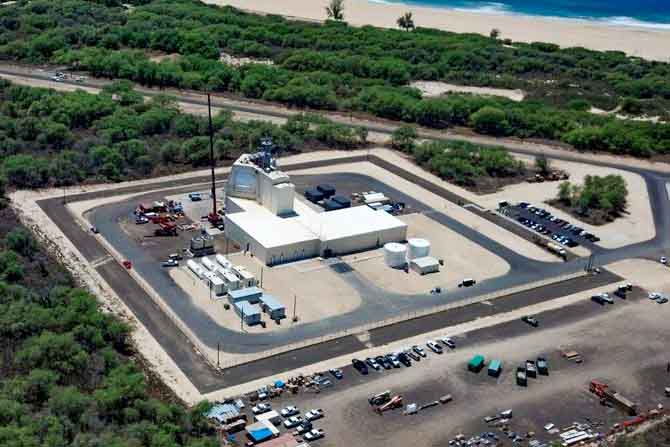
Military base in Redzikowo, near Słupsk. (Source: Interia)
The ratification process by the Sejm was again stopped under the pretext of the US presidential election in November 2008. In January 2009, Barack Hussein Obama entered the White House, but the attitude of the American authorities towards the anti-missile shield has not changed. According to documents published by Wikileaks, the US ambassador met with the Speaker of the Sejm, Bronisław Komorowski, asking when the agreement on the anti-missile base in Poland would finally be ratified. President Komorowski linked this project with the negotiation of an agreement on the stationing of US troops in Poland, but he promised that the Sejm would take up this topic before the end of 2009. Unfortunately, this did not happen, so after more than a year of waiting, on September 17, 2009 — on the anniversary of the Russian invasion of Poland — Barack Obama's administration informed the Tusk team about the abandonment of the missile defense shield project and the construction of the base.
Eventually, after many years, the base in Redzikowo near Słupsk was built, but without long-range missiles, using the shorter-range AEGIS naval systems mounted on warships. As it is an American base, it was designed by American engineers with the appropriate clearances. It so happened that my ZS Engineering DPC design office, after being verified by the US Department of Defense, won a contract to design fire protection systems for this base and for the project supervision.
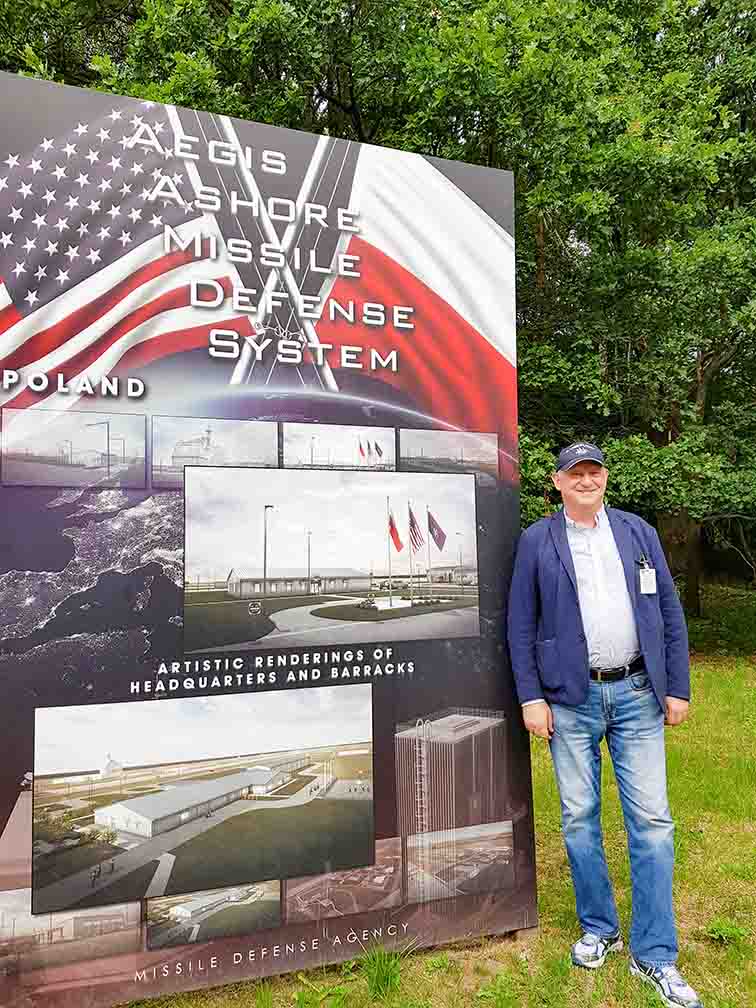
Base in Redzikowo (Source: Z. Staszewski)
During the term of president Donald Trump, from 2017 to 2020, we completed design work and largely satisied the engineering supervision in Redzikowo. Unfortunately, the epidemic of the Chinese virus from Wuhan and the related two-week quarantines of healthy people, both after arriving in Poland, and after returning to the US, prevented us from completing the supervision duties, because whether it were me or one of my employees, we would have to spend 4 weeks in quarantine just to do a few days' worth of inspection. These duties were taken over by a Polish company in which one of the former employees of my design office ZS Engineering DPC works, after returning from emigration to Poland. Currently, it looks like the anti-missile base in Redzikowo will be fully operational at the end of this year — with a delay of more than 10 years.
Here, by the way, I must point out that only three years ago, Emmanuel Macron announced that, in the absence of threats to Europe, the NATO alliance would be unnecessary. These calculations were changed on December 17, 2021 by a statement by Russia, in which the US and NATO would have to limit their influence in Europe, and Central Europe, especially the member states of the former Warsaw Pact, would again be in the sphere of Russian influence. Russia's attack on Ukraine on February 24, 2022 and the propaganda attacks on the USA and Poland proved how wrong President Macron was.
On May 24 and 25 this year, the 4th edition of the Defense 24 Day conference and exhibition took place in Warsaw under the slogan: "Defense, Industry, Resilence". I was invited to this conference by Chris Węgrzycki, of the Lubicz coat of arms — President of the General George S. Patton Alliance Poland, which is part of the Patton Alliance USA (pictured below). I am honored to be a member of the Foundation's Council of Advisors — more information at www.pattonfoundationpoland.info.
The conference was attended, among others, by Minister of National Defense Mariusz Błaszczak, Head of the National Security Bureau Pawel Soloch, generals Jaroslaw Mika and Artur Kamczynski, Ukrainian ambassador Andrij Deszczyca, and other representatives of the diplomatic corps. This two-day conference included 33 panel discussions and debates, as well as an exhibition of the latest military equipment and new technologies.
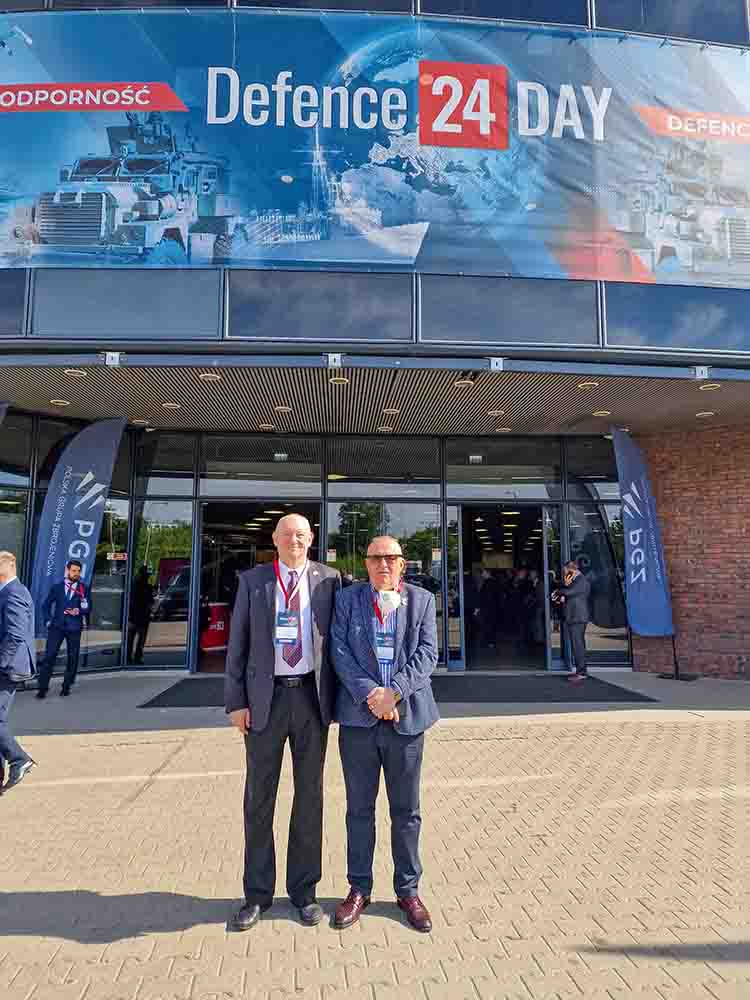
Defense 24 Day Conference (2022) (Source: Z. Staszewski)
Minister of National Defense Mariusz Błaszczak spoke about the recently signed by President Andrzej Duda "Act on the Defense of the Fatherland" in the context of the upcoming NATO Summit in Madrid. He also announced recruitment for voluntary essential military service, a reform of the procurement system for the military, a contract for two phases of the Vistula defense program based on the American Patriot system. At the same time, he presented a plan to expand Polish production and service capacities under the slogan "Polish Modernization".
In turn, the head of the National Security Bureau, Pawel Soloch, mentioned the exercises "Kraj" of 2019 and the need to increase the number of Polish armed forces from the current approximately 150,000 to the planned 300,000 soldiers. He emphasized that the strategy of defending Poland's borders and, at the same time, NATO's eastern border, must prevent the enemy from occupying even a small area in order to prevent rape and cruelty to the Polish population by the enemy, and that the occupied territory would not have to be recaptured afterwards. Deficiencies in air defense are to be filled by NATO in the form of increasing the battalion's presence to the brigade level. He also mentioned the need to develop the Three Seas Initiative, in which Poland plays a leading role.
The Ukrainian ambassador, Andriy Deschytsia, emphasized the motivations and heroic actions of the Ukrainian army and the civilian population who had joined the fight. He stated that no one in Europe or the world expected that Ukraine would withstand the first strike of Russian troops. He also described the brutality of Russian soldiers in the territories they occupied. The Ambassador thanked Poland for military aid to Ukraine, especially emphasizing the efficiency and ease of use of Polish Piorun systems (pictured below). He also thanked the Poles for accepting millions of refugees. He also stated that Ukraine would apply for membership in the European Union and NATO. At the end of his speech, he stressed that Russia should never be able to threaten others again.
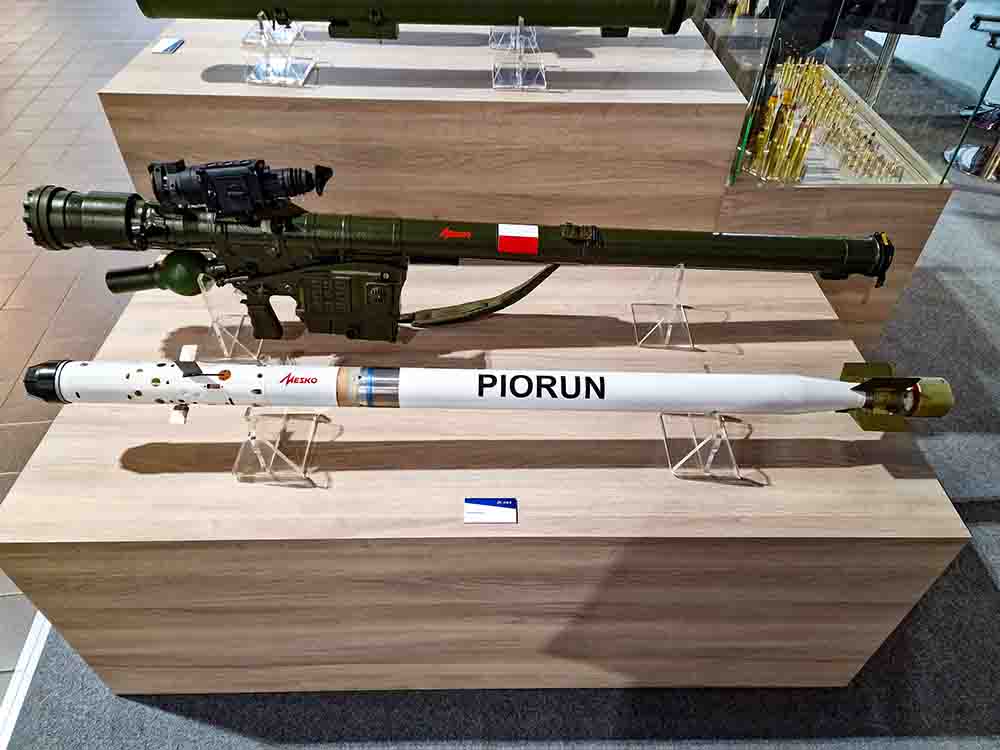
Polski Piorun (Source: Defence24)
Simona Cojocaru — Secretary of State in the Ministry of National Defense of Romania — spoke in the first discussion panel under the slogan: "What kind of NATO — before the summit in Madrid". She stated that the time of innocence in Europe is over in light of Russia's aggression against Ukraine three months ago. As a result, the NATO guidelines from the previous Lisbon conference are now obsolete. That is why as many as 3 NATO conferences are planned this year, which has never happened before. The North Atlantic Pact must also revise its strategy, especially in the Black Sea. In this context, Romania declared an increase in military spending from 2% to 2.5% in 2023. The Ambassador also stated that during the Russian Victory Parade on May 9, Putin was unable to announce the achievement of the set strategic goals in Ukraine.
The Polish military representative to the military committees of NATO and the European Union, General Janusz Adamczak, emphasized that NATO does not ask individual countries to join its structures — independent countries apply for admission to NATO themselves. This is what happened in the case of Sweden and Finland, which will be discussed at the NATO Summit in Madrid. The General remarked that Poland was observing Russia's military actions in Ukraine and drew conclusions from it. He stated that Russia is able to circumvent some of the sanctions imposed by the West, has a defensive regeneration potential, as proven during World War II, but needs time to replenish losses in weapons. Therefore, NATO should use this time to strengthen its own potential.
In turn, Undersecretary of State in the Ministry of Foreign Affairs, Marcin Przytacz, summed up the government's activity since 2015 and mentioned the ongoing talks on increasing the NATO contingent in Poland, Lithuania, Latvia, and Estonia, especially in light of Russia's military integration with Belarus. He also stressed that if Ukraine had the opportunity to join NATO in 2008, it could have prevented the current war.
Another discussion panel with the participation of the Secretary of State at the Ministry of National Defense Wojciech Skurkiewicz, and generals Jaroslaw Mika, Szymon Koziatek and Karol Molenda, concerned the directions of changes of the Armed Forces based on the Model 2040, in the context of the "Act on the Defense of the Fatherland."
The discussion panel entitled "Mobilization of the economy in response to the challenges of the 21st century" was also very interesting. The need to maintain the continuity of the supply chain for the military was emphasized here. The defeat of the Russian army in the first weeks of the war was caused by logistics. While the US has 10 support soldiers per one attack soldier, Russia only had 3. Communications failed and the Russians were forced to use cell phones that were easily tracked by the Ukrainians and their location information made it possible to destroy command centers.
At present, a mobilization of strategic reserves and material support for private enterprises producing for the military are underway in Poland. The head of the Logistics Planning Board, Colonel Janusz Filipiak, emphasized the necessity of preparations in times of peace, with an emphasis on two elements: education of the society and logistics. The situation on the Polish-Belarusian border last winter required the troops to be deployed over a distance of 400 km, which resulted in the need for structural changes in the supply chain, and also ad-hoc purchases. The Governmental Material Reserves Agency did a great job here.
In turn, the President of the Management Board of PKP Cargo (Polskie Koleje Państwowe, Polish National Railway) Dariusz Seliga emphasized the importance of rail transport in the supply of weapons to Ukraine, and at the same time in the movement of refugees. In the future, the reconstruction of Ukraine will be mainly based on deliveries by rail. That is why Prime Minister Mateusz Morawiecki has just signed the foundational declarations for the Polish-Ukrainian shipping company.
The Vice-President of the Management Board of the Polish Development Fund Bartosz Marczuk emphasized that investments in the field of Polish defense actually consume a lot of funds, but at the same time stimulate the entire economy. According to him, the four most important challenges of the 21st century are modern economy, demographic growth, an efficient state, and internal and external security. That is why the Polish Development Fund supports the Central Communication Port, the Port of Gdansk, start-ups of new companies, including defense companies, energy diversification, integration of secret communication means, etc.
Foreign companies such as Northrop Grumman, General Atomics, Boeing, Airbus, and Dassault Systems were present at the accompanying exhibition as well as Raytheon Technologies and Garand. As far as Polish companies are concerned, I would like to highlight the presence of Fabryka Broni Radom (Weapons Factory Radom), which produces, in my opinion, excellent modular Grot rifles. Zakłady Mechaniczne Tarnów (Mechanical Works Tarnów) and PZL-Świdnik (Polskie Zakłady Lotnicze, Polish Aviation Works), among others, also presented their equipment.
The conference and exhibition confirmed the major changes that are currently taking place within the Polish armed forces and Polish defense companies, as well as the new way the authorities think in the context of the war in Ukraine about the potential threats to the NATO countries, including Poland.



